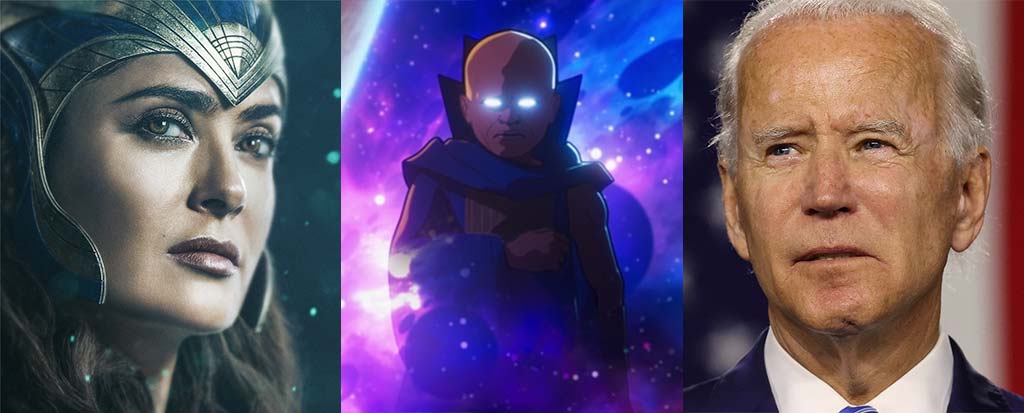What good is building up higher powers when it does nothing to spare us from suffering? Why do we elevate people to these positions at all if they won’t use that power? Why do we design our myths and legends to be helpless despite unfathomable practical powers?
Entertainment Media
Whenever our entertainment delves into the nature of near-omnipotent beings, it seems like it must also come with excuses for why they can’t help those less powerful than themselves. Even in our fantastical worlds, we can’t seem to stretch our imaginations enough to perceive what it would be like to have powerful beings actually do something benevolent for us.
Spoiler alert for media mentioned in the headers and bold text below
Star Trek’s Prime Directive
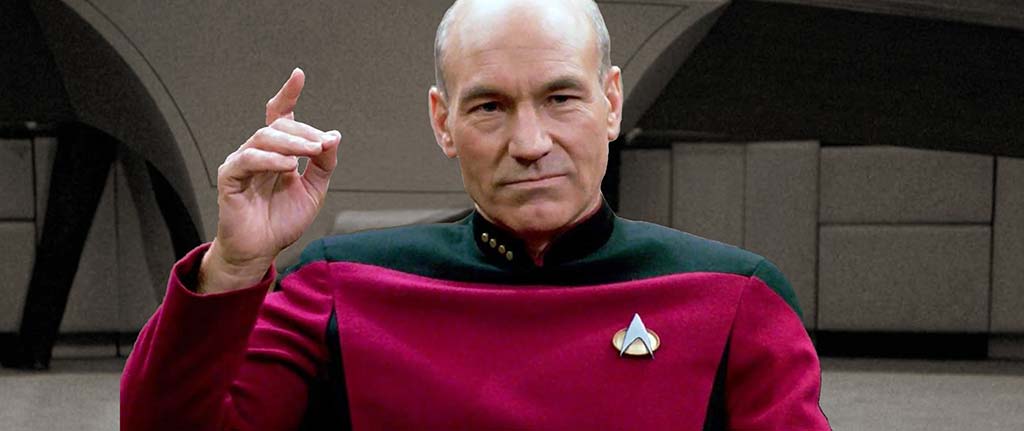
Star Fleet has the prime directive, where they’re not permitted to interfere in the development of cultures outside of the Federation. This is the least bullshit version of this idea I’ve encountered.
Cultural genocide is a real thing that any ethical person or organization with asymmetrical power must avoid. Gene Roddenberry saw what the US was doing in Vietnam and was inspired to imagine leaders who don’t as easily run roughshod over others in his utopian futuristic fiction.
Part of why the Prime Directive works for me is because of how it’s treated in the storytelling. It is violated or bent constantly, and seems to be mostly considered an ideal rather than a rule that forbids interference absolutely.
Another reason it works for me is that Star Fleet is not omnipotent. They have technology thousands of years ahead of some of the civilizations they encounter, but they can’t seamlessly travel through time on a whim. They can’t resurrect trillions of long-dead beings with a snap of a finger. They can’t travel across lightyears of space in minutes without a space suit like Captain Marvel. They may live in a post-scarcity future, but their power has several limitations that gods and superheroes don’t.
Other recent media deals with powers beyond even that of a galaxy-spanning governing military force, yet holds a lower bar for how those entities use power.
The Watcher (from the What If…? series)
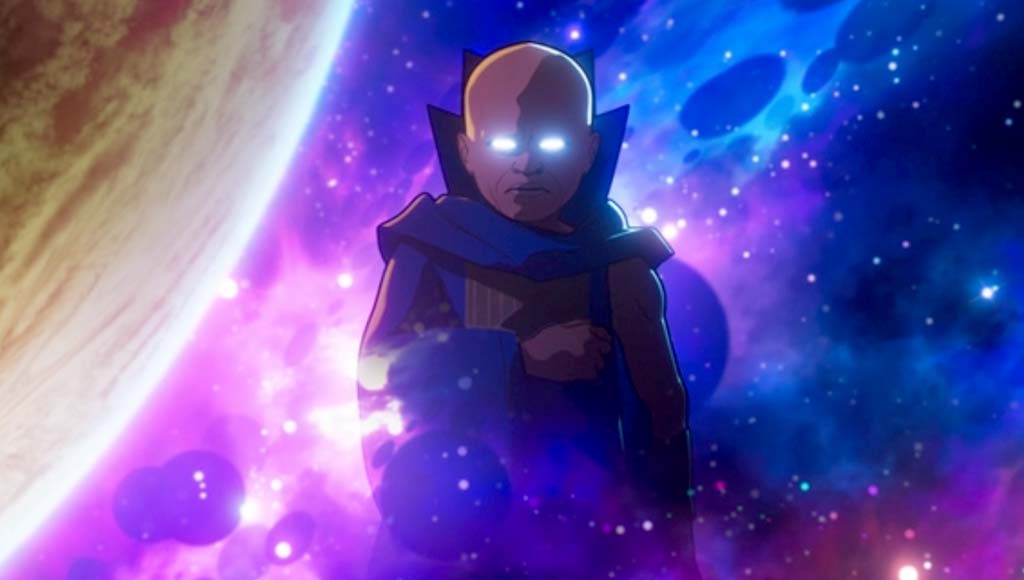
The Watcher in the MCU* is omniscient and virtually omnipotent based on what we see in the episode “What If… The Watcher Broke His Oath?”, but forbids himself from interfering with any events in the universe because of … I’m actually not sure.
*(in the comics, The Watcher is a bit different and I don't care to discuss that version because so few people know about it)
If he’s worried about the timelines staying the same, then he’s aligned with the Time-Keepers from the Loki series. Except the Time-Keepers are as heavy-handed as possible with their interference. And if The Watcher isn’t in league with them, he’s allowing them to do whatever they want to interfere in each others’ timelines by his inaction.
If he didn’t have near-omnipotence in addition to his omniscience, perhaps he could be an audience surrogate character that’s helpless to affect the horrors he sees across reality. That could be an interesting consequence of hypothetical past sins. Listening to that character’s words might carry more weight because of that powerlessness.
If he were omnipotent but had no way to see the suffering in the multiverse — the way Captain Marvel or some of the other “top-tier” superheroes are — that could carry some dramatic weight, though it might be well-trod ground at this point.
But he’s not helpless or ignorant, and that changes everything. It means he’s content to leave the suffering he sees alone. He chooses not to pull the lever on the trolley problem every moment of his existence. His inaction then serves the villains of the universe, so The Watcher is a supervillain as well.
Inaction while Thanos is killing half of all life in the universe is not neutrality. Especially while he can see every moment leading up to that goal, with Thanos openly plotting exactly that result.
The Eternals
Finally we get to the most recent movie that triggered my rant about this topic.
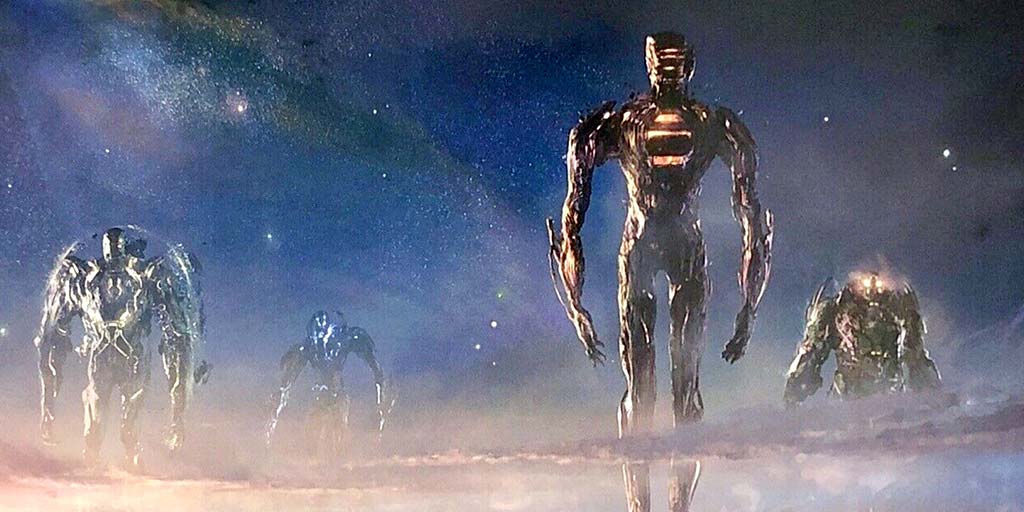
While The Eternals don’t have the near-limitless power of The Watcher or the Celestials they serve, they each have enough power to stop every human atrocity that’s ever occurred (at least in our knowable reality). Except they don’t.
The Celestials programmed the Eternals to “protect” humans the same way we “protect” chickens in factory farms. Celestials need to eat a large quantity of sentient beings to be born, and apparently the quality of our “sentience” is something that scales up between different types of life forms. Or there’s some other unnamed metric that raises the value of humans above those of animals or algae.
The Eternals don’t protect humans from the Black Plague, Influenza, natural disasters, war, or any other massive loss of life that’s struck us in the last 2,000 years. They even depict the violent colonization of Central America in the movie, and give Druig a moment when he can object to the cruel and senseless rule.
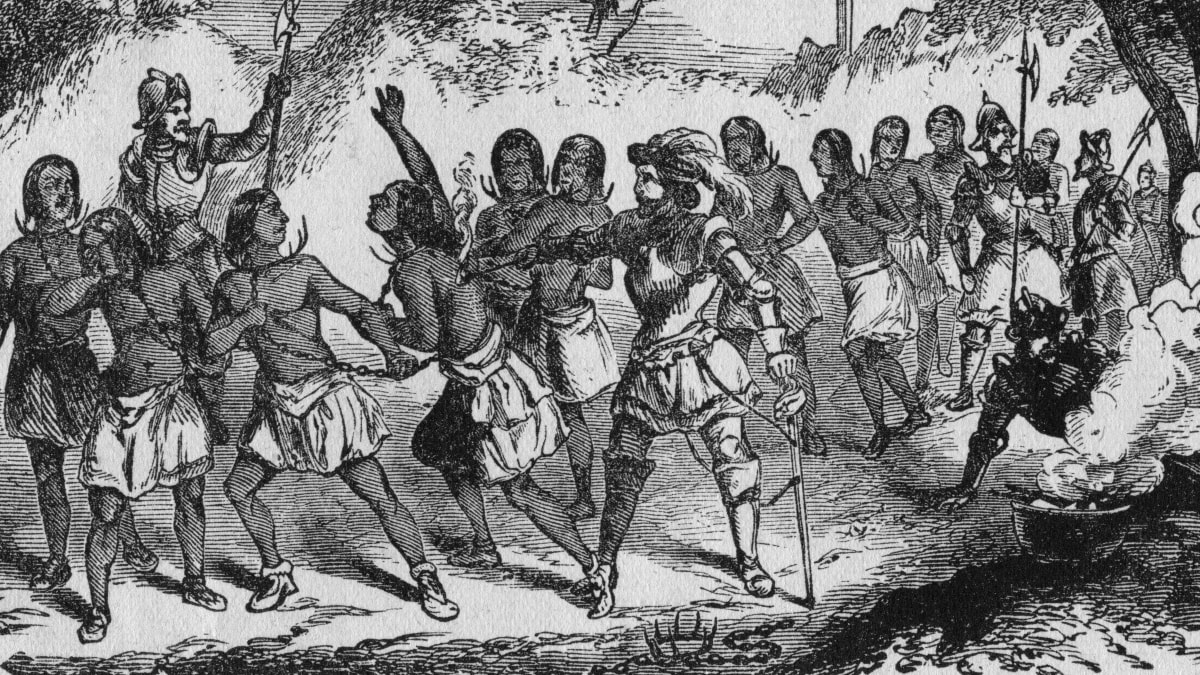
They openly interfere with the development of human society. They introduce major technological breakthroughs. They walk among us as immortals for most of human history. They don’t make any attempts to hide until they have their break-up moment. So they don’t have any problem with manipulating the evolution of our species or societies.
The only thing I’ve been able to think of that makes any sense has to do with the unspoken metric that gives human life more value per capita for Celestials. I posit it must be some quotient of suffering that we must experience that makes us nutritious enough to provide maximum value to them.
Suffer Little Children
This is a common theme in religious myths too, and it’s one of the many reasons I reject them in favor of my own fan fiction where Jesus has been reborn over and over again into societies that either persecute him or just refuse to listen.
Many religions teach that suffering is inevitable, or even somehow righteous. They teach us that their deities are invisible and work in mysterious ways. Many of them even teach slaves to love their masters, or at least to revere the powerful — no matter who they are.
I call bullshit on that, and I ascribe these inclusions in texts as later insertions once a given religion has aspirations to rise to enough prominence to be recognized by the kings and queens of that era.
When I smell whiffs of this propaganda in my fiction, it immediately turns me off.
Enough of this Theme
While I appreciate that some aspects of these stories are critical of the laws powerful beings hide behind, the recurring concept as a starting point for our fiction is irritating. Watching media that uses it reminds me how disappointing powerful people are in real life.
I want to see stories of brave people who use power to affect positive change for others and then let go of that power once the work is done without dawdling in the comforts afforded their position.
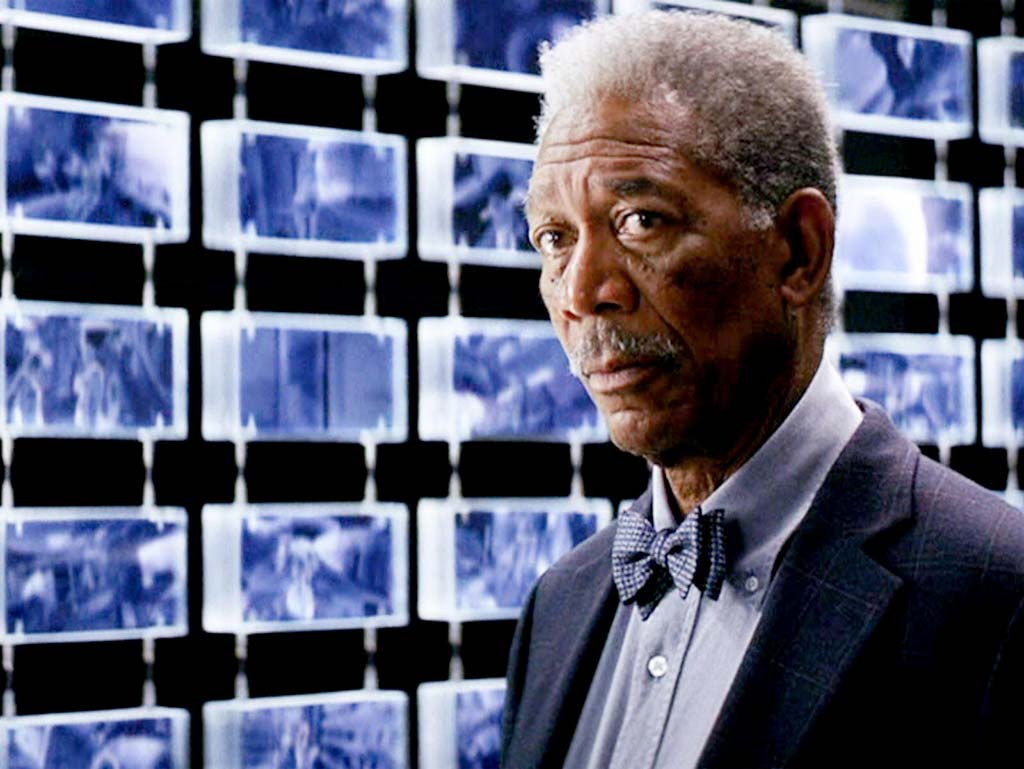
We need more Lucius Fox types in our hero stories. In The Dark Knight, Lucius spoke up when he saw ethical breaches by his powerful boss. And when given a huge amount of exploitable power to save Gotham City from Joker, he used it effectively and then immediately destroyed it.
Aside: Yes, Bruce Wayne built that self-destruct mechanism into the device, but he wouldn't have thought to do so in the first place if he hadn't intended Lucius to operate it. And even less likely if he hadn't had Lucius's advice along the way.
Humanizing Power
Even better: I want stories where we can see actual benevolent powerful characters. Characters that succeed in helping the least powerful and sacrifice their own power to do so. They don’t need to die; in fact it would be more meaningful if they didn’t.
Imagine Superman having to walk the Earth as Clark Kent forever in order to save humanity from a real-world issue like climate change or a pandemic.
Not a fist-fight with Darkseid or anything else he can do with blunt force. An opportunity to take his own Kryptonian invulnerability and share it with every human on the planet at great cost to himself.
This would be a more compelling superhero story than watching more “laser beam fights” or “Godzilla-sized fist fights that destroy whole cities”.
I can’t think of a good way to make this transition, so here is where I’d like to talk about the real-world misuses of power that make me so salty about my fictional media consumption.
Parents
Few have less power than children. Adults often forget that. Children are captive audiences for practically everything, and that includes marketing and propaganda. Predatory companies groom children for the moment they turn 18, when they can finally legally pounce on them.
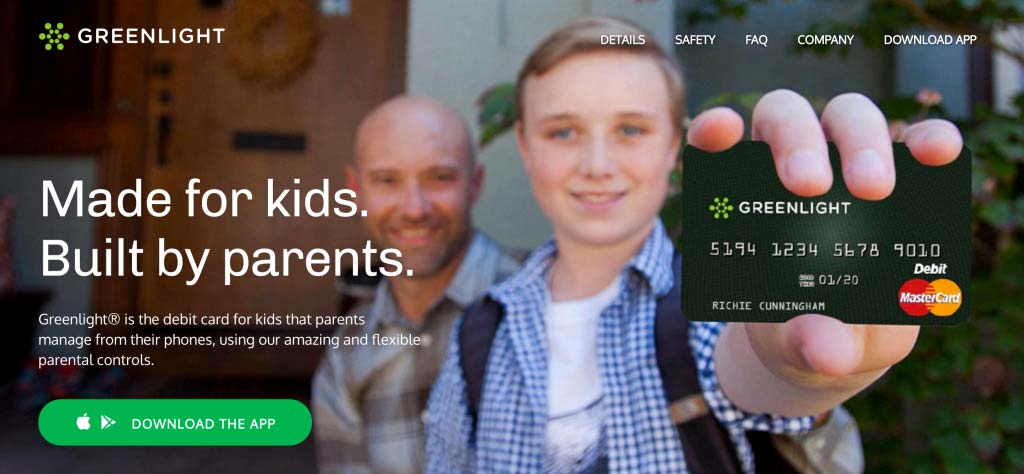
In a country where parental leave, child care, and healthcare are considered luxuries, it’s easy to feel powerless and exhausted as a parent. But there are ways parents have incredible power that they can choose to exercise for good.
Values
I hear jokes about kids being able to make decisions when they can pay rent or move out. When a child shows an interest, some parents give unsolicited feedback about how lucrative a job that interest could be someday. This is teaching that value is based on dollars instead of coming from within at an early age. Which ends up meaning that all of our values are decided by the wealthy people who have the most power to manipulate markets and currencies.
If that’s your thing and you want to pass your MAGA hat down to your kids someday, then go for it. Just don’t unintentionally teach them whoever has the most money is the best person.
All evidence I’ve seen in my near forty years of life as an American has indicated to me that this is already fact, but I feel like most Americans aren’t aware of it, and possibly don’t want it to be this way. Where we place value is a big factor in how individuals decide who deserves power, and that can mean everything to shaping our culture and even humanity’s future.
Truth and Reality
Many parents won’t answer their children’s questions truthfully until they’re older — under the impression that they’re protecting them in some way. In reality, kids can handle harsh truth better than comforting lies, especially if considering long-term impact. What kids find hard to handle are lies, inconsistencies, hypocrisy, and disappointment.
The only reason to be dishonest with children when they ask us questions is to make them easier to control, and manipulate them for our benefit.
And what’s good about being easy to control? While children are single-digit age it can seem like an amazing thing, but as soon as those children start going to school, making friends on their own, and going on the internet they’re now more vulnerable to far more powerful influences than any parent’s. Going into that unprepared can have permanent negative consequences.
Lie to a kid about Santa Claus, marijuana, God, or any number of other symbolic tales we might allow them to take literally and how can they trust us any more than they might trust a rapey pastor? Or a racist streamer on Twitch or YouTube? Or the teenager’s equivalent of Alex Jones?
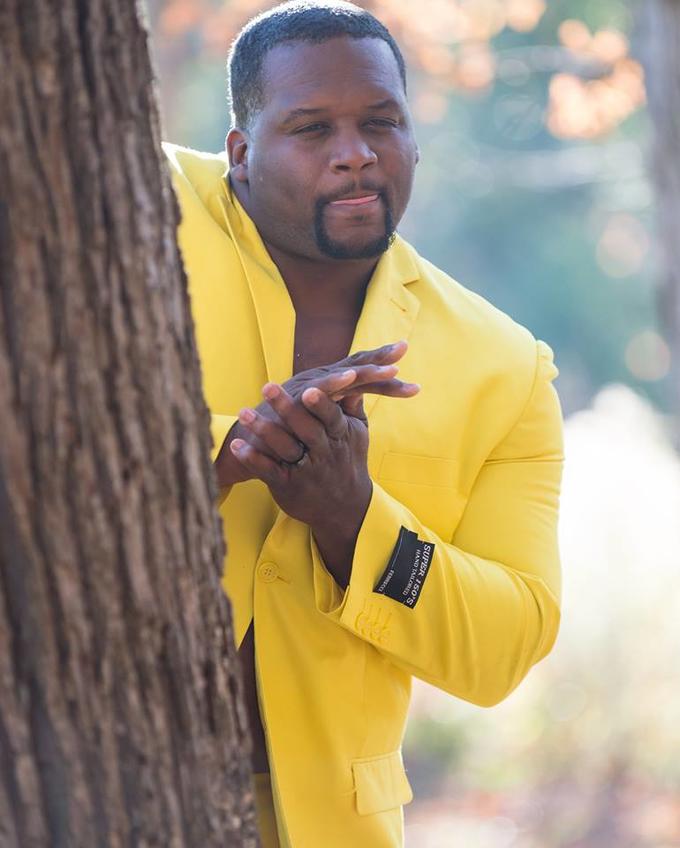
Will they come to us with questions they have about topics they hear about when we’re not around? Will they trust our answers if they compete with other influences?
Our Duty to Our Influence
Not to pine on my controversial views about having children in yet another blog post, but children don’t need to pay their dues or be toughened up. We can’t prevent those things from happening entirely, but neglecting to protect them from it when we can is inexcusable.
This is not solely the responsibility of parents. Each person who encounters someone younger or less experienced than themselves should be just as considerate. Parents don’t often seem to realize how powerful anchoring bias is. They can use that power to inoculate their kids from those who see them as prey.
Our Bosses
- How many times has my company touted themselves as a great place to work while denying anything we workers ask for?
- How many times have they told us about the open door policy where they welcome our candor while never doing anything with the input we provide?
- How many times has our boss told us that they tried to get us that promotion/raise, but just couldn’t swing it this year?
And despite what they’d love for us to think, our bosses all have more money than we do. If you go just a step or two up the org chart, there is always room in the budget for the things they care about.
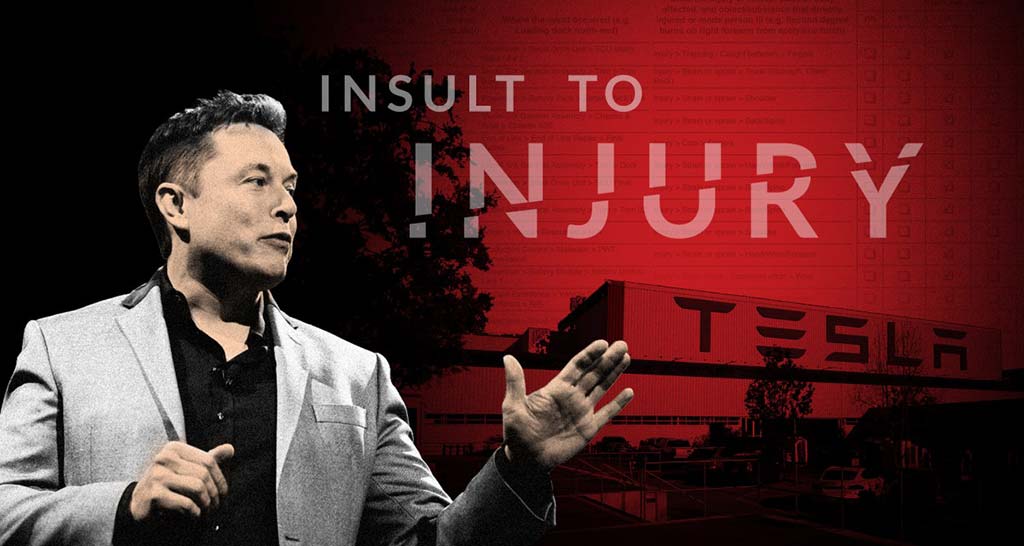
Managing up is part of each person’s job, and every step of the hierarchy has the power to do it. That includes our bosses; even the CEO has to manage the expectations of shareholders. If I can spend time and effort in my busy day to advocate for my team to my boss, then they can do the same with their boss. This is recursive all the way up to the board of directors. None of them are powerless, and attempts they make to sell that lazy lie to us should be swept away as quickly as they’re whined down to us.
As middle-managers, if we can’t make them care about our needs, then we either need to push harder or find another job. As workers that do all the doing, we have to know our value and be ready to take it elsewhere or use it differently if we’re not treated fairly.
Organize
We need more people to unionize if we still can. We need something — anything — that can help us unite against the decrepit metastasizing shape of corporate power.
Propaganda
Our more veiled (yet still mostly fictitious and entertainment-based) news and social media outlets work in service of maintaining existing power structures. They’re owned wholly by a handful of billionaires and built specifically to shape our lives into what they deem to make us best fit to work for them and then consume their products and give that money right back.
Our cramped cages in the factory farm are walled-in by constantly telling us that our value is only measured in dollars. We deserve to starve if we don’t sell our labor for the lowest possible bid. The services we provide are valued only according to the wealth the powerful can extract from us. We can’t even decide what to do with our own bodies without someone powerful getting a cut off the top.
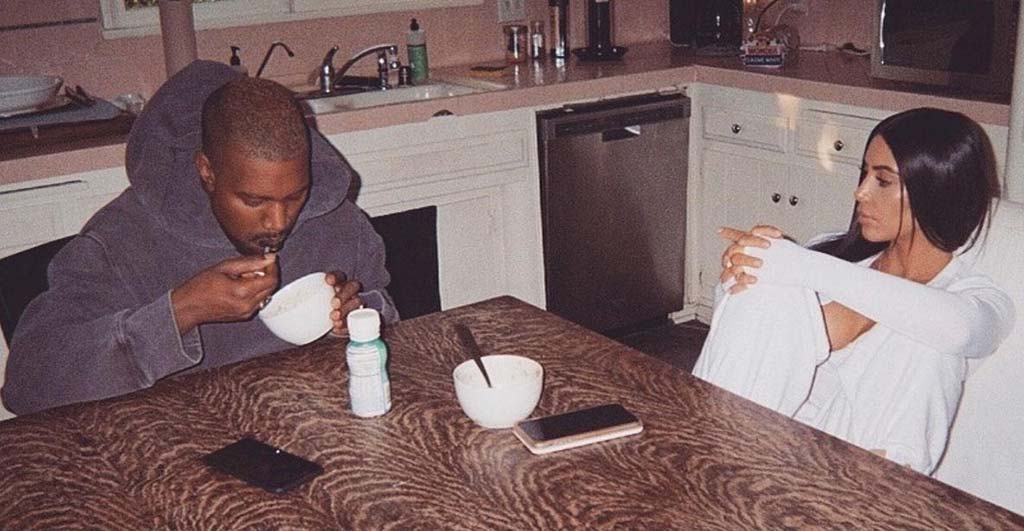
We’re kept distracted by the same propaganda networks inciting hatred and fear for our neighbors over harmless differences like race, gender, religion, and sexuality. They share a Black Lives Matter hashtag or throw a rainbow flag behind a logo and go about supporting the very systems that the people represented by these symbols are crushed by.
It’s incredibly effective and becoming more sophisticated every day. And no one in power is even trying to stop them.
Democrats
Joe Biden has delayed getting rid of the filibuster, a key move that could release the country from deadlock and allow us enough wiggle room to pull out of our death spiral into corporate fascism, for nearly a full year and counting.
Democrats refused to match dirty GOP tactics to stop the appointment of Kavanaugh or Barrett. We elected them to fight for us and they just stood by.
Democrats are also super cool with doing nothing substantial about climate change until around 2050. Yet more evidence that neither American nor global powers care if hundreds of millions of people suffer and die. They and everyone they care about will be safe afloat piles of cash.
All they care about is that no matter what happens in the future, the same assholes will be on top.
Literally nothing can stop these shindigs.
Irving
Mr. Robot – Season 3 Episode 7 (~35:45)
Conservatism
Today’s Democratic party is the true conservative party. The “progress” being made by changing the way the country runs is coming from the right, and has been for decades now. The left wins symbolic victories once per decade or so, but puts no new pieces on the board. They don’t invest in our future. They don’t attempt to change anything meaningful and lasting. They are merely obstructionists for the right.
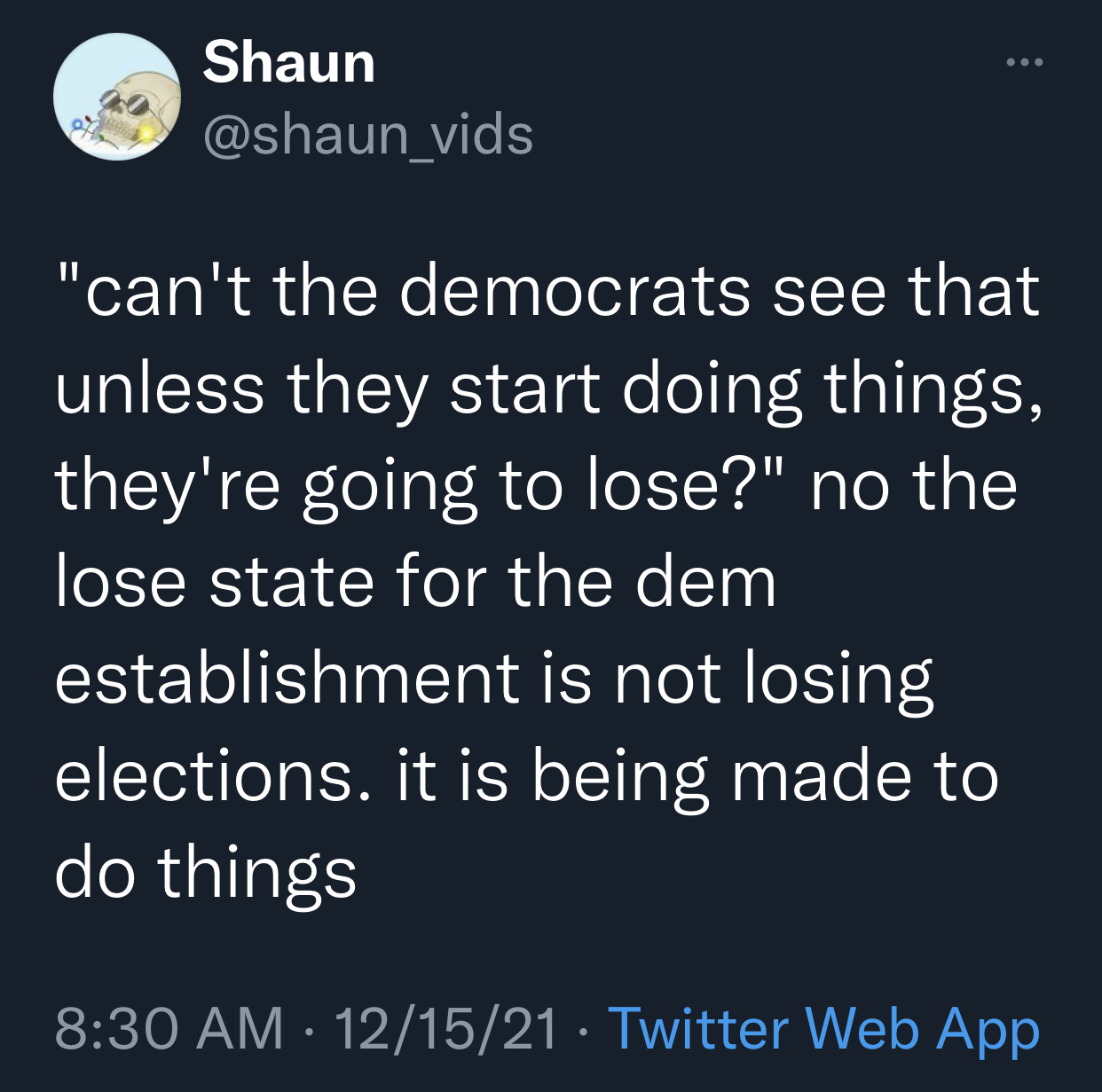
And the right needs to be obstructed — clearly — but that requires real moves on multiple axes. Momentum, or entropy as I view it, is on the right’s side. If hitting drills in football practice taught me anything, it’s that those who can’t shift their angle of attack get pancaked.
But most of the people we empower through our votes have continuously shown themselves to be unwilling.
And this isn’t to say that our votes don’t matter. At least voting to put these people in power in the first place allows us to see which of them were always lying about their intentions and replace them. If we don’t show up every election, they will never have to prove themselves and we’ll lose what little obstruction we have. They will always be able to point the blame at the other team, or at those of us who sat an election out.
We still have to show up because we are part of that one mainstream axis of attack, as Sisyphean as it feels. We can’t let up our end and expect others (activists, vigilante hacking groups, international human rights watchmen, etc.) to pull all the weight themselves.
Generational and Racial Power
Another part of the problem is the generational wealth gap and racial wealth gap. As in many other ways, we are grossly misrepresented in politics by significantly older, whiter people.
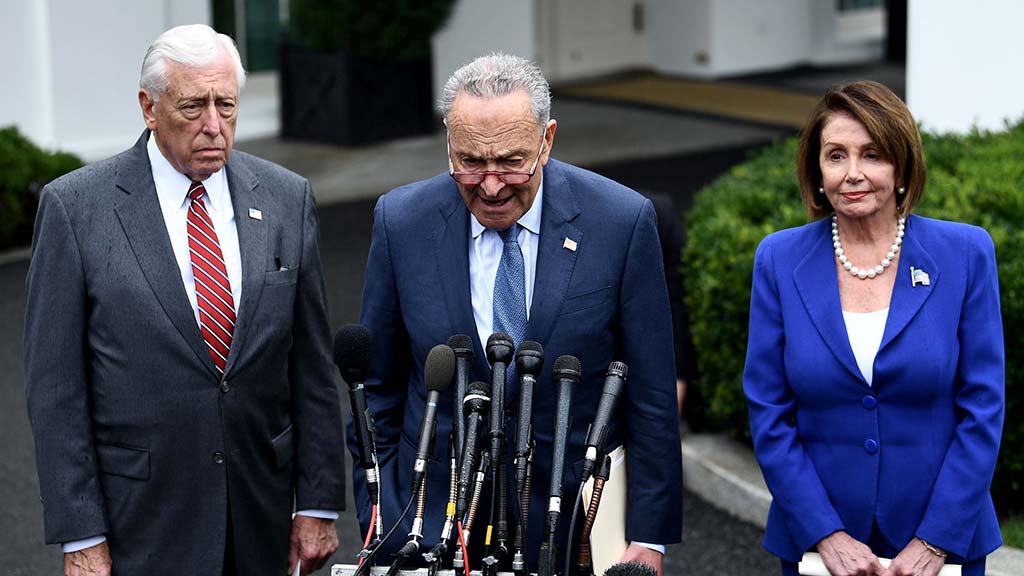
It’s ageist for me to say it, but I doubt my opinion will change when I’m older, so I’m just going to say it. I believe there should be an age limit for elected representatives in national offices. Term limits can help, but I think we need to do more than that.
- Representation matters. We desperately need “young” people (under 50) engaged in politics as voters and as candidates.
- Building experience. Political effectiveness is at least partially based on experience in those hallways and back rooms. We should focus more on passing that experience down to younger reps.
- Skin in the game. People in their 60’s and older likely won’t be around to see through the promises they’re making today about what we should do by 2050.
But we have a generation in power today who are reluctant to pass power down to anyone else until they die. And the only way to implement such a policy (or any policy) is to go through these hoarders all agreeing to do it. So, we’re essentially fucked until voters get smarter (ha!) or enough boomers die.
We need a more representative democracy in racial demographics too. The first step toward that goal is to break through the filibuster and pass a new Voting Rights Act. I don’t know what could possibly be more important for America’s future.
Cowardly Self-Interest
It may not seem relevant to rant about Marvel movies at the same time as talking about these weighty real-world issues, but our imaginations are where we start when it comes to our expectations. Our superheroes, our religious myths, and our folk tales are what we pass down over generations to depict what goodness and evil with power are capable of. They are meant to embody our ideals, and we’re not holding our ideals to a high enough standard.
I’m tired of being sold excuses. It always comes down to a desire to keep the power they have and sit complacently in it rather than use it and risk losing it. Villains have no problem doing this in the real world, while our self-styled heroes do nothing. This is why I adopted a view many years ago that I’ve found confirmed since.
Power rots when held in the same hands for too long.
If we’re in a position of power — any power at all:
- When was the last time I used my power to make the lives of others better?
- Have I put my own title, bonus, or reputation on the line to try and get my team promotions, raises, benefits, or better working conditions?
- Have I set my own ego aside for a moment to allow a child’s perspective to shape itself without my interference?
- Have I stepped up when a colleague was being bullied by a customer, client, vendor, or supervisor and stood up for them?
- How effective have I been at advocating for workplace improvements my colleagues request?
- An even more uncomfortable question: Do I only hold my position because of my ineffectiveness in this? (Ex: Do I get bonuses/recognition for understaffing shifts?)
We all have some power, and none of us can afford to risk what we have lightly. We have to be strategic about when we push our chips into the middle of the table. But we also can’t spend the entire game doing nothing while still believing we’re good at our jobs or morally decent.
If we’re not willing to give up our position to do something good for the others around us, then we should at the very least get out of the way of people who are.
If we do not act, we shall surely be dragged down the long, dark, and shameful corridors of time reserved for those who possess power without compassion, might without morality, and strength without sight.
Martin Luther King Jr.
Beyond Vietnam: A Time to Break Silence
April 4, 1967
related article
